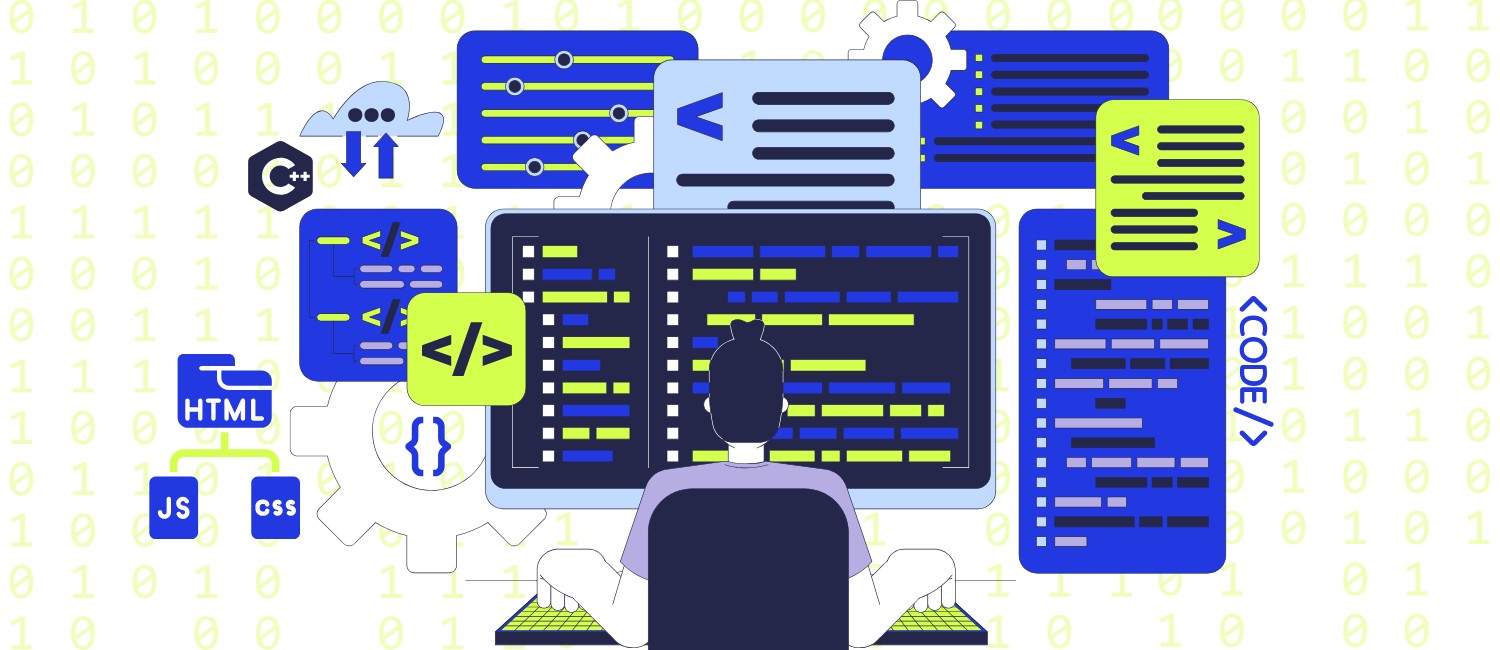“Blog written by Indu Indu R Eswarappa, Career Coach & Education Change-Maker”
Hey there!
Have you ever wondered what goes into building the apps and websites we use every day? I get this question a lot from students who are curious about tech careers. If you love solving problems and working with technology, software engineering might be the perfect fit for you!
I’ve seen firsthand how software engineering opens up incredible opportunities. It’s a high-paying, future-proof career that spans across industries—whether it’s healthcare, finance, gaming, or even space exploration! Companies everywhere are on the lookout for skilled software engineers, making it one of the most in-demand professions today.
Just to give you an idea, the U.S. Bureau of Labor Statistics in 2023 reported in 2023 that the median annual salary for software engineers is around $130,160. And guess what? The demand is only increasing! The field is expected to grow by 17% from 2023 to 2033, with about 140,100 job openings every year. Pretty exciting, right?
I’ve also noticed that many people assume software engineering is just about coding. While coding is a big part of it, there’s so much more—problem-solving, designing systems, and even working in leadership roles like CTOs or product managers. The best part? You can work remotely, freelance, or even start your own tech company. Plus, with new advancements in AI, blockchain, and cybersecurity, there’s always something new to learn!
So, if you’re passionate about tech and innovation, software engineering is definitely worth exploring.
Let’s dive into what software engineers actually do!
Key Responsibilities
Software engineers design, develop, and maintain applications and systems, playing a crucial role in building the technology we use every day. Their responsibilities range from writing, testing, and debugging code in languages like Python, Java, C++, or JavaScript to developing web and mobile applications. They also focus on designing software architectures and databases, ensuring that applications are secure, efficient, and scalable.
Here are the key roles and responsibilities:
DevOps Engineer
- Automates software development and deployment for seamless team collaboration.
- Builds CI/CD pipelines to streamline software releases.
- Manages cloud infrastructure for scalability and reliability.
- Optimizes system performance and ensures high availability.
Cybersecurity Engineer
- Protects software and networks from cyber threats.
- Conducts risk assessments and penetration testing.
- Develops encryption and security solutions.
- Ensures compliance with industry security standards.
AI/ML Engineer
- Designs machine learning models for data analysis and predictions.
- Optimizes algorithms for AI applications.
- Integrates AI models into real-world systems.
Cloud Engineer
- Builds and manages scalable cloud infrastructure.
- Implements security, automation, and monitoring strategies.
- Ensures high availability and disaster recovery.
Software Architect
- Defines the overall software structure, ensuring scalability, maintainability, and security.
- Designs system architecture, microservices, and APIs to create efficient and robust software solutions.
- Evaluates new technologies and frameworks to improve software development processes.
- Works closely with development teams to ensure best coding practices and architectural consistency.
Work Environment
Software engineers work in diverse environments, from corporate offices and startups to fully remote setups. Their workspace is typically collaborative, involving cross-functional teams, agile development, and regular problem-solving.
Many enjoy flexible schedules, hybrid work models, and the autonomy to innovate. Whether coding, debugging, or brainstorming solutions, the work environment fosters continuous learning and adaptation to emerging technologies.

Where Do Software Engineers Work?
- Tech giants, startups, and product-based companies: Work on cutting-edge technologies, build scalable products, and innovate in a fast-paced environment.
- Banks, healthcare firms, e-commerce, and gaming industries: Develop secure banking systems, healthcare solutions, online shopping platforms, and immersive gaming experiences.
- Government agencies, research institutions, and consulting firms: Solve large-scale problems, enhance cybersecurity, and provide tech-driven solutions for various industries.
What's Work Culture Like?
- Highly collaborative: Work closely with designers, product managers, and testers to develop innovative solutions.
- Continuous learning: Stay updated with new programming languages, tools, and frameworks to keep up with industry trends.
- Flexible work options: Enjoy remote work, freelancing, or even launching your own tech startup for greater career freedom.
Educational Pathways & Required Qualifications
Let’s explore how to become a software engineer in India, the education required, and the various career paths available in this dynamic field.
A degree in Computer Science, Software Engineering, or Information Technology is the most common path, covering programming, algorithms, and software development principles. However, even if you don’t have a tech background, you can break into software engineering through coding boot camps, diploma programs, and online certifications in languages like Python, Java, or JavaScript.
The key is hands-on experience—building projects, contributing to open-source, and continuously learning new technologies.
Bachelor’s Degree Programs (3-4 years)
A strong foundation in software engineering starts with a bachelor’s degree in computer science or a related field.
Some Relevant Courses
- B.Tech in Software Engineering
- B.Tech in Computer Science & Engineering (CSE) with specialization in Software Engineering
- B.Sc. in Computer Science / Software Engineering
Master’s Degree Programs (1-2 years)
For those looking to specialize further, a master’s degree can help advance careers in research, specialized software fields, or leadership positions.
Course
- M.Tech in Software Engineering
- M.Sc. in Computer Science / Software Engineering
- M.Sc.(Information Technology)
Diploma & Certification Programs
- PG Diploma in Software Development
- Diploma in Computer Science & Software Engineering
- Google IT Automation with Python
- AWS Certified Developer
- Full Stack Web Development Bootcamp
Entrance Exams to Get into UG/PG Courses in Software Engineering
Program | Entrance Exam | Conducted By | Exam Format | Subjects Covered | Exam Duration |
B.Tech in Software Engineering / Computer Science | JEE Advanced, JEE Main, VITEEE, SRMJEEE | NTA, VIT, SRM University | MCQ-based | Mathematics, Physics, Chemistry | 3 Hours |
B.Tech in Computer Science & Engineering (CSE) with Specialization in Software Engineering | JEE Advanced, JEE Main, MET, KIITEE | NTA, Manipal, KIIT | Objective (MCQs) | Mathematics, Physics, Chemistry | 4 Hours |
B.Tech in Computer Science & Engineering (CSE) with Specialization in Software Engineering | JEE Advanced, JEE Main, MET, KIITEE | NTA, Manipal, KIIT | MCQ-based | Mathematics, Physics, Chemistry | 3 Hours |
B.Sc. in Computer Science / Software Engineering | Institution-specific entrance exams or merit-based admission | Respective Universities | Varies by institution | Mathematics, Computer Science, Electronics | 2 Hours |
Master’s Degree Programs (1-2 years)
Program | Entrance Exam | Conducted By | Exam Format | Subjects Covered | Exam Duration |
M.Tech in Software Engineering | GATE, VITMEE, SRMJEEE PG | IITs, NITs, VIT, SRM University | MCQ-based | Computer Science, Engineering Mathematics | 3 Hours |
M.Sc. in Computer Science / Software Engineering | Institution-specific entrance exams | Respective Universities | Varies by institution | Computer Science, Programming, Data Structures | 3 Hours |
M.Sc. in Information Technology | Institution-specific entrance exams or merit-based admission | Respective Universities | Varies by institution | Information Technology, Database Management, Networks | 3 Hours |
Necessary Soft Skills & Technical Abilities
To succeed as a software engineer, a mix of technical expertise, problem-solving skills, and strong communication abilities is crucial. While coding skills are essential, collaborating effectively with teams and explaining complex ideas clearly are just as important. Software engineers thrive in diverse industries like AI, cybersecurity, gaming, and cloud computing, with career growth opportunities in both startups and global tech companies. As the industry evolves quickly, staying updated with new technologies is key. Along with technical knowledge, soft skills like teamwork, adaptability, and continuous learning are essential for advancing to roles like Senior Developer, Tech Lead, or CTO.

Essential Skills for Software Engineers
Success in software engineering requires a blend of technical and soft skills.
Technical Skills:
- Programming Languages: Python, Java, C++, JavaScript.
- Web Development: HTML, CSS, React, Angular.
- Database Management: SQL, NoSQL, PostgreSQL.
- Cloud Computing: AWS, Azure, Google Cloud.
- DevOps & Automation: Docker, Kubernetes, CI/CD tools.
Soft Skills:
- Problem-Solving Mindset – Essential for debugging code, optimizing algorithms, and finding efficient solutions to complex programming challenges.
- Critical Thinking – Helps in designing scalable architectures, understanding system limitations, and improving software efficiency.
- Communication Skills – Crucial for explaining technical concepts to clients, collaborating with cross-functional teams, and documenting code effectively.
- Attention to Detail – Ensures accuracy in coding, prevents software bugs, and helps in reviewing code for potential errors.
Software Engineer: Career Progression and Growth Opportunities
I have observed that software engineering offers immense career progression, from junior developer roles to leadership positions. As technology continues to evolve, professionals with expertise in coding, system architecture, and software development are in high demand across industries like finance, healthcare, and e-commerce.
Through my research, I have realized that career paths for software engineers depend on continuous skill enhancement, practical experience, and adaptability to emerging technologies. The rise of DevOps, cloud computing, and AI-driven development has further expanded career opportunities. With the right blend of technical proficiency, problem-solving abilities, and collaboration skills, software engineers can advance into managerial and executive roles, become technical architects, or specialize in high-growth fields like artificial intelligence, cybersecurity, blockchain, and full-stack development.
Career Levels in Software Engineering
From what I have seen, here’s how a career in software engineering typically progresses:
Entry-Level: Junior Software Engineer, Frontend Developer, Backend Developer, Full-Stack Developer
Mid-Level: Software Engineer, DevOps Engineer, Mobile App Developer, Cloud Engineer
Senior-Level: Senior Software Engineer, Software Architect, Engineering Manager, Director of Software Engineering
Specialized Roles: AI Engineer, Cybersecurity Specialist, Blockchain Developer, Embedded Systems Engineer
Salary Expectations & ROI-ROT
Return on Investment (ROI):
A career in software engineering is a strong investment due to global demand and competitive salaries. Here’s a breakdown:
Education Costs: A bachelor’s degree in computer science or related fields costs ₹3-15 lakh, while a master’s degree can increase the investment to ₹7-30 lakh, including certifications.
Salary & Earnings Potential: Initial investment is around ₹7-30 lakh, with returns of ₹12-50+ LPA in 3-10 years, depending on experience and specialization.
Return on Time (ROT):
Education Duration: 3-4 years for a Bachelor’s degree, 1-2 years for a Master’s degree.
Time to Break Even: 2-4 years based on average salary.
Fast-Track Option: Short-term certifications (AWS, Kubernetes, React, AI/ML), bootcamps, and hands-on projects can accelerate career growth.
Salary Expectations & Growth Opportunities
Software engineering is one of the highest-paying careers in the tech industry. The career paths for software engineers are dynamic, offering rapid growth and progression. Moreover, salaries vary based on experience, location, and specialization. With just a few years of experience, you can significantly increase your earning potential!
Entry-Level (0-2 years): ₹5-12 LPA in India / $60,000-$100,000 in the US.
Mid-Level (3-7 years): ₹12-25 LPA in India / $100,000-$150,000 in the US.
Senior-Level (8+ years): ₹25+ LPA in India / $150,000+ in the US.
With experience, software engineers can advance to roles like Tech Lead, Software Architect, or even Chief Technology Officer (CTO).
Future Prospects: The Next 20-30 Years
The future of software engineering is exciting, with AI-driven development and low-code/no-code platforms speeding up software creation. While automation will handle routine tasks, expert software engineers will remain essential for designing, optimizing, and securing systems. Quantum computing, along with advancements in cloud computing, cybersecurity, and AI, will open up new career opportunities.
Industries like healthcare, fintech, and space exploration will continue to offer top salaries for skilled engineers who can build innovative and secure solutions. With rising automation, ethical AI, and IoT, the demand for talented engineers will only grow, making now the perfect time to pursue a career in software engineering.
Want to launch your career in software engineering? Let NextMovez guide you with expert career coaching to help you navigate this dynamic and fast-growing field!
Final Thoughts
Thinking about how to become a software engineer? Trust me, it’s an exciting and rewarding path! The demand for skilled developers is skyrocketing, and businesses across every industry are relying on software solutions more than ever. If you love coding, problem-solving, and working with cutting-edge technology, this could be the perfect career for you.
So, what do you think? Ready to dive into the world of software engineering?
I hope this guide helps you understand the career paths for software engineers and make the right career choice. Software engineering offers immense opportunities, and with the right skills, you can land a high-paying job and build an impactful career in just a few years. If you have any questions, drop them in the comments—I’d be happy to guide you further!
Resources & References Used:
- Stack Overflow Developer Survey 2024
- LinkedIn Jobs Data on Software Engineer Demand (2024)
- Online Courses from Coursera, Udemy, and edX






















